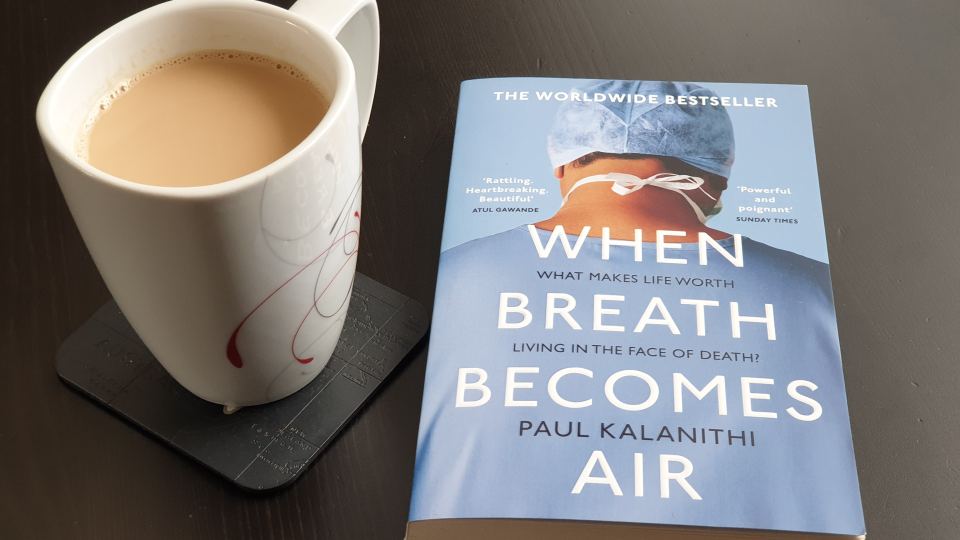When Breath Becomes Air

- Original Title:
- When Breath Becomes Air
- Author:
- Paul Kalanithi
- Published:
- 2016
- Buy at:
- bookdepository.com
“When Breath Becomes Air” is memoir written by Paul Kalanithi, a neurosurgeon, who at the age of 36 was diagnosed with IV stage lung cancer. The book is divided into two parts and the epilogue written by author’s wife. In the first part of the book, author writes about his healthy years and the deep interest during those years in the questions of the life and death. He tried to find answers to these questions in the literature, and his passion for these questions lead him to study the medicine and to become the neurosurgeon. In the second part of the book writer writes about receiving and dealing with the lung cancer diagnosis.
Writing the book, while facing the death author discuss the important questions related to the meaning of the life. Also, author discuss the important decisions that he needs to make. Facing the death also means coming to the terms that future that he imagined and planned with his wife won’t come true. But there is also decision whether to have a child while facing the death. Author also explores the patient-doctor relationship; being doctor and patient himself, he offers two valuable perspectives. He suggests that the responsibility of doctors when giving the prognosis is to be accurate and to leave the statist for research halls, not hospital rooms. His attitude is evident in this words: ”I came to believe that it is irresponsible to be more precise than you can be accurate. Those apocryphal doctors who gave specific numbers (“The doctor told me I had six months to live”): Who were they, I wondered, and who taught them statistics?”. Author’s humanity and love for other human beings is also evident in his attitude toward his patients to whom he feels responsibility not only to successful operate their brain, but to understand their mind – their values, identity, what is meaningful in their life and what can ruin their life. He was dedicated to be successful in protecting the life of his patients, feeling the guilt when failing in that. He says: “Those burdens are what make medicine holy and wholly impossible: in taking up another’s cross, one must sometimes get crushed by the weight”. In coming to the terms with his own death, author decides: “I would have to learn to live in a different way, seeing death as an imposing itinerant visitor but knowing that even if I’m dying, until I actually die, I am still living”.
This is a such profound book written by remarkable man, the book that I would recommend to everybody. I especially hope that future and current doctor will be motivated by this book to work on improving the relationship with patients and to treat them as humans understanding the struggle that someone with terminal illness diagnosis is facing. This memoir can also serve as an inspiration to all of us to understand and live a life that is worth living.





